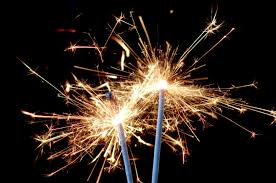

The New York State Division of Consumer Protection (DCP) reminds New Yorkers to keep safe while celebrating Independence Day. The celebration of the 4th of July is a time-honored summer tradition of family outdoor fun, grilled food, and fireworks. However, it could also be dangerous if New Yorkers do not take the necessary precautions to have a safe and enjoyable time. All Independence Day celebrations must follow all applicable state guidance and take place in accordance with the state’s phased-in, regional reopening plan as detailed in the NY Forward website.
DCP partners with the United States Consumer Product Safety Commission (CPSC) in its year-round efforts to educate consumers to help prevent accidents and injuries. Between 2012 and 2019, the CPSC received reports of 126 fireworks-related deaths. In 2019, the CPSC estimated 10,000 fireworks-related, emergency department-treated injuries, with 73 percent of them occurring between June 21 and July 21.
“I know many New Yorkers are eager to celebrate Independence Day this year, but we must ensure our celebrations are safe by following the necessary health precautions,” said Secretary of State Rossana Rosado who oversees the NYS Division of Consumer Protection. “Not only do we want to keep our COVID-19 infection rate low, we want to make sure time-honored holiday traditions of fireworks and grilling are done safely by following basic tips.”
New York State permits the sale of sparkling devices by registered sellers from June 1 until July 5 annually and allows consumers 18 or older to use sparkling devices. Currently, sparkling devices are illegal in the City of New York, and Bronx, Columbia, Kings, Nassau, New York, Orange (prohibited in the Cities of Middletown and Newburgh only), Queens, Richmond, Schenectady, Suffolk, and Westchester. In 2019, sparklers accounted for more than half of the total estimated injuries for children under the age of 5. It is illegal for anyone under 18 years of age to use sparkling devices in New York State.
Sparkling devices are ground-based or handheld sparking devices that produce a shower of colored sparks or colored flame, crackling or whistling noise and smoke. They do not launch into the air. Any other types of fireworks including firecrackers, bottle rockets, roman candles, spinners, and aerial devices are illegal and remain illegal statewide.
Tips for Using Fireworks Safely:
- Only purchase sparking and novelty devices from New York State registered temporary seasonal retailers. A list of registered retailers is available here.
- Never use or make professional-grade fireworks.
- Do not buy or use fireworks that are packaged in brown paper; this is often a sign that the fireworks were made for professional displays and are not for consumer use.
- Never allow young children to play with or ignite fireworks, including sparklers. Sparklers burn at temperatures of about 2,000 degrees This is hot enough to melt some metals.
- Never place any part of your body directly over a fireworks device when lighting the fuse. Move to a safe distance immediately after lighting fireworks.
- Never point or throw fireworks at another person or occupied area.
- Always wear eye protection when using sparkling devices.
- Light fireworks outside, one at a time, then move away from them quickly.
- Keep a bucket of water, garden hose, or fire extinguisher handy, in case of fire or other mishap.
- Never try to relight or handle malfunctioning fireworks. Soak them with water and throw them away.
- After fireworks complete their burning, douse the spent device with plenty of water from a bucket or hose before discarding the device, to prevent a trash fire.
Before lighting the grill do a safety check.
- Inspect the hoses on a gas grill for cracking, brittleness, holes and leaks. Make sure there are no sharp bends in the hose or tubing and that all connections are secure. Replace if necessary.
- Check for propane gas leaks. Open the gas supply valve fully and apply a soapy solution with a brush at the connection point. If bubbles appear, there is a leak. Try tightening the tank connection. If that does not stop the leak, close the gas valve and have the grill repaired by a qualified professional.
- Make sure the grill is clean. Regularly cleaning the grill, as described in the owner’s manual, and cleaning the grease trap, will reduce the risk of flare-ups and grease fires.
- Only use grills outside in a well-ventilated area. Never use a grill indoors, in a garage, breezeway, carport, porch, next to your home or under a surface that will burn.
- Gas and charcoal grills present a risk of fire and/or carbon monoxide (CO) poisoning that could result in injury or death. Thousands of gas or charcoal grill-related injuries are reported in hospital emergency departments each year. While most of the injuries are burns, a few of the charcoal grill injuries are often related to carbon monoxide.
Once the grill’s lit.
- Keep the grill hoses as far away as possible from hot surfaces and dripping hot grease.
- Never leave a grill unattended. If a flare-up occurs, adjust the controls on the gas grill or spread out the coals on a charcoal grill to lower the temperature.
- If a grease fire occurs, turn off the gas grill and use baking soda and/or a kitchen fire extinguisher to put out the fire.
- Keep children away from the grill area. The outside surface of a grill can get hot and burn when touched.
To learn more about consumer safety, or to file a marketplace consumer complaint against a business or individual, please contact the Division’s Consumer Helpline at (800) 697-1220 or visit its website at www.dos.ny.gov/consumerprotection. Follow the Division of Consumer Protection on social media at Twitter: @NYSConsumer and Facebook: www.facebook.com/nysconsumer.